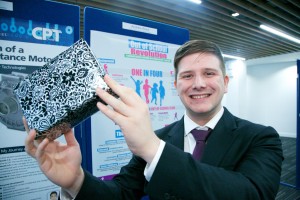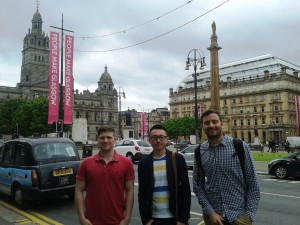Name: Joe Morecroft
Role: KTP Associate for Extech Cloud
Project details: 2 year project which aimed to develop and implement a transformative and disruptive business innovation strategy. New knowledge was brought into the company from academics from the University of Brighton Business School, via the KTP Associate, Joe.
Why do you think KTPs are important?
It’s beneficial for all three parties – the university, the company and the Associate. The company has access to knowledge from top-tier academics, the university gets access to industry and real challenges, and the Associate benefits from both. Everyone mutually benefits.
How did you find out about the KTP scheme and the job opportunity?
Luck! I was speaking with a family friend, who just so happened to be working with KTPs as one of the academics. She was giving me career advice, and after a while the KTP came up in conversation. It interested me, so I applied and luckily, I was hired!
How did the KTP offer you something different?
The benefit of the KTP is that you have the backing of the University and academics. They help you with evidence-based knowledge, rather than ‘best practice’ myths. It allows you to then apply tools and models in industry and see real outcomes.
How did you use your personal development budget?
I used it for training, notably with a course called Aware Competitive Intelligence and a mini-MBA in Marketing. Both were excellent. The personal development budget was one of the best things about the KTP.
What was the most enjoyable aspect of being an Associate?
The conversations with the academics and learning from them. Spending a few hours each week with both my mentors was hugely beneficial to me and my career. To work with the academics was one of those opportunities that are rarely comes along in life, and I was fortunate enough to have that for two years.
What are you hoping to do next in your career?
Take what I learned from the KTP, improve it and use the experience to continue developing my career.
How would you describe your KTP experience, in three words?
Paul Levy’s biscuits. We could always depend on our lead academic to always bring biscuits to meetings and quarterly reviews to get the discussion going!
Why would you recommend KTP to other graduates?
There are several benefits that come with being a KTP Associate: mentors, personal development budget, university access etc. Use the time wisely to develop yourself and make the most of the benefits that come with being a KTP Associate.
Find out more about being a KTP Associate on the graduate page of our website, or see the business pages for more information on the scheme.
















